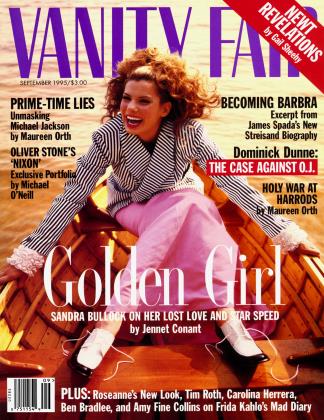Sign In to Your Account
Subscribers have complete access to the archive.
Sign In Not a Subscriber?Join NowShe was an awkward unknown from Brooklyn named Barbara, but when she opened her mouth and sang...! In an excerpt from Streisand: Her Life, JAMES SPADA re-creates the dawn of the raw young talent—her first auditions, her marriage, and the epic battles over her first leading role, in Funny Girl—as she burst into superstardom
September 1995 James SpadaShe was an awkward unknown from Brooklyn named Barbara, but when she opened her mouth and sang...! In an excerpt from Streisand: Her Life, JAMES SPADA re-creates the dawn of the raw young talent—her first auditions, her marriage, and the epic battles over her first leading role, in Funny Girl—as she burst into superstardom
September 1995 James Spada View Full Issue
View Full Issue






Subscribers have complete access to the archive.
Sign In Not a Subscriber?Join Now